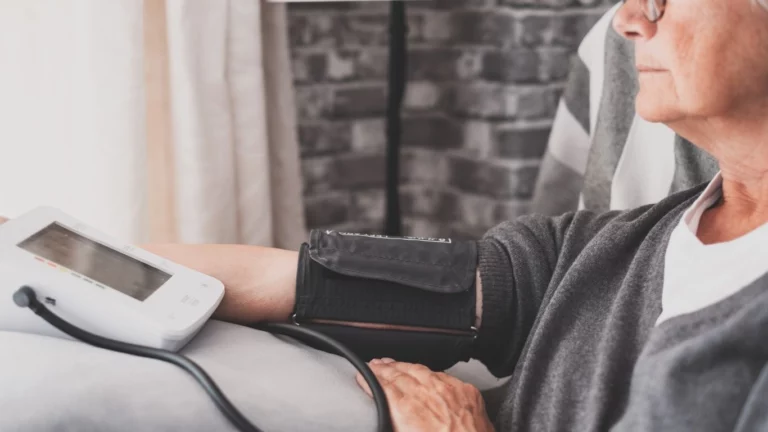Understanding Rheumatoid Arthritis: Stress and Flare-ups
Living with rheumatoid arthritis (RA) is a daily challenge for many people. As someone who has spent years diagnosing, treating, and managing RA, I’ve seen firsthand the toll this condition can take on the body and mind. One aspect that often gets overlooked when discussing RA is the critical role that stress plays in flare-ups. While there are many factors that influence the severity of symptoms, stress can be one of the most unpredictable triggers for a flare-up. In this article, we’ll dive into the connection between rheumatoid arthritis and the role of stress in flare-ups, focusing on how stress can make RA symptoms worse and what you can do about it.
Understanding Rheumatoid Arthritis: More Than Just Joint Pain

Rheumatoid arthritis is more than just pain in your joints. It’s an autoimmune condition that causes your immune system to mistakenly attack the lining of your joints, resulting in inflammation, pain, and sometimes joint damage. Unlike osteoarthritis, which typically develops due to wear and tear, RA is systemic, meaning it can affect other organs and body systems as well. This can lead to fatigue, fever, and even difficulty breathing, depending on how severe the flare-ups are.
For those of us who manage RA, the pain and discomfort can range from mild to severe. But what many don’t realize is that external factors, like stress, can significantly impact the severity of these flare-ups. The link between stress and rheumatoid arthritis isn’t just theoretical—it’s backed by research. Studies have shown that people with RA experience higher levels of stress, and stress, in turn, can exacerbate symptoms. But why exactly does this happen?
How Stress Triggers RA Flare-Ups
To understand how stress affects rheumatoid arthritis, we first need to look at what stress does to the body. When we’re under stress, our bodies go into “fight or flight” mode, releasing a flood of hormones, including cortisol and adrenaline. These hormones are meant to help us respond to a threat quickly, but if stress is chronic (as it often is in people with RA), this constant state of high alert can have a negative impact on the immune system.
In those with rheumatoid arthritis, the immune system is already compromised, and stress can make this situation worse. When stressed, the body’s inflammatory response can get out of hand, leading to increased inflammation in the joints. This, in turn, can cause the pain and stiffness that RA patients are all too familiar with. Stress doesn’t just affect the joints—it can influence the overall health of the body, making it harder for the body to cope with RA.
The Psychological Impact of RA
On top of the physical toll, rheumatoid arthritis can take a mental and emotional toll as well. Chronic pain can lead to feelings of frustration, helplessness, and even depression. It’s no surprise that stress is common in people living with RA. For many, just getting through a typical day can feel overwhelming, especially when symptoms flare up unexpectedly. This mental strain can make stress levels skyrocket, creating a vicious cycle where the pain from RA causes stress, and the stress worsens the RA symptoms.

Managing Stress to Minimize RA Flare-Ups
While it may be impossible to eliminate all stress from your life, there are plenty of ways to manage it to help reduce the impact on your rheumatoid arthritis. Here are some practical steps that can help you keep stress in check and, in turn, reduce the frequency and severity of flare-ups:
1. Stress-Relief Techniques: Meditation, Breathing Exercises, and More
When it comes to managing stress, finding effective techniques is key. Meditation and mindfulness practices have been shown to reduce stress and improve overall well-being. In fact, studies suggest that people with RA who practice meditation report reduced levels of pain and stress. If sitting still for long periods doesn’t appeal to you, try deep breathing exercises or yoga. Even just a few minutes a day can make a difference in how your body reacts to stress.
2. Regular Exercise: A Natural Stress Buster
Exercise has long been recommended for RA patients to help maintain joint mobility and reduce pain. But did you know that physical activity also helps reduce stress? When you exercise, your body releases endorphins, the “feel-good” hormones that can help improve mood and alleviate anxiety. Regular physical activity can also improve sleep, another factor that can help manage stress and improve overall quality of life for RA patients.
3. Prioritize Sleep
Sleep is a crucial component in stress management. Lack of sleep can worsen stress levels and, in turn, increase inflammation in the body. If you’re having trouble sleeping due to RA pain, consider talking to your doctor about pain management strategies before bed. Good sleep hygiene, such as a consistent sleep schedule, a relaxing bedtime routine, and a cool, dark sleeping environment, can also help promote better sleep.
The Importance of Support Networks in Managing RA and Stress
Another key element in managing stress is having a strong support network. Living with RA can feel isolating at times, but surrounding yourself with family, friends, or support groups can provide the emotional support you need. Knowing that others understand what you’re going through can significantly reduce the mental and emotional burden of living with RA. Whether it’s a support group or just someone to talk to, don’t underestimate the power of connection.

4. Seeking Professional Help
If stress and RA are becoming overwhelming, it might be time to seek professional help. A therapist can help you develop healthy coping strategies, while your rheumatologist can help you manage the physical aspects of RA. The combination of mental and physical care is the best approach to reducing flare-ups and improving your overall health.

When we talk about rheumatoid arthritis, it’s easy to focus solely on the physical aspects: joint pain, inflammation, and stiffness. However, it’s crucial to recognize that RA is a complex condition that doesn’t just affect the body—it impacts the mind and emotions as well. This is where the biopsychosocial model comes into play. It’s a framework that looks at how biological, psychological, and social factors all interact and influence each other in the context of health and disease.
For those of us managing RA, we know how important it is to look beyond just the physical symptoms. Stress, as we discussed earlier, plays a massive role in how the condition progresses. It’s not just about taking medication to ease the inflammation; it’s about addressing the full spectrum of challenges that come with living with a chronic illness. For example, if you’re feeling overwhelmed, anxious, or isolated, those emotions can manifest in your body as increased pain or stiffness. It’s all interconnected.
Chronic Stress and the Immune System: A Dangerous Relationship
The immune system is at the heart of rheumatoid arthritis, as it’s the malfunctioning immune response that causes joint damage. Stress, however, can disrupt the immune system’s normal functioning and make matters worse. When you’re stressed, your body produces cortisol, a hormone that can suppress immune function. Initially, cortisol helps to manage inflammation. But over time, chronic stress can lead to cortisol resistance, meaning your body becomes less responsive to the calming effects of this hormone.
This resistance to cortisol can have severe consequences. When your body is unable to regulate inflammation properly, it can lead to prolonged flare-ups and even accelerate joint damage. That’s why stress management is often just as important as medication for people living with RA. By managing stress, you’re giving your immune system a fighting chance to work properly and reduce flare-ups.
Inflammation and Stress: The Vicious Cycle
The relationship between inflammation and stress creates a vicious cycle. Stress leads to increased inflammation, and increased inflammation leads to more pain and discomfort, which, in turn, causes more stress. This cycle can feel never-ending, and it’s one of the reasons why managing RA is so difficult. That’s why breaking this cycle is crucial to managing the condition and reducing flare-ups. This is where a combination of lifestyle changes, mental health strategies, and medical intervention can make a world of difference.
The Role of Nutrition in Managing Stress and RA

When it comes to managing rheumatoid arthritis, nutrition is often overlooked. But did you know that what you eat can play a significant role in reducing inflammation and managing stress? A balanced, anti-inflammatory diet can help calm your immune system, reduce flare-ups, and even improve your mood.
Here are a few dietary changes that have worked wonders for many people with RA:
- Omega-3 Fatty Acids: Found in foods like salmon, walnuts, and flaxseeds, omega-3 fatty acids are known for their anti-inflammatory properties. They can help reduce joint pain and stiffness, as well as lower stress levels.
- Fruits and Vegetables: Rich in antioxidants and vitamins, fruits and veggies, especially colorful ones like berries, spinach, and bell peppers, can help fight inflammation and support overall health.
- Whole Grains: Whole grains such as brown rice and quinoa provide fiber, which is essential for digestive health. Plus, they can help stabilize blood sugar levels, preventing mood swings associated with high sugar intake.
- Limit Processed Foods: Foods high in sugar, refined carbs, and unhealthy fats can contribute to both inflammation and stress. Reducing processed foods in your diet can make a big difference in managing RA.
These are just a few ways that nutrition can be part of a holistic approach to managing rheumatoid arthritis. Pairing a healthy diet with other stress-reduction techniques like exercise, sleep, and mindfulness can truly help manage flare-ups and promote better quality of life.
Psychological Resilience: How to Build Mental Strength in the Face of RA

As someone who has worked with RA patients for years, one thing that stands out to me is the importance of mental resilience. Living with a chronic condition like rheumatoid arthritis can be mentally exhausting. It’s easy to get caught up in feelings of frustration, anger, or sadness when your body is betraying you. But building psychological resilience can help you better cope with the ups and downs of RA and stress.
1. Cultivate a Positive Mindset
It might sound cliché, but maintaining a positive attitude can truly make a difference in how you manage your condition. While it’s important to acknowledge the challenges that come with RA, focusing on what you can control—like managing stress, taking care of your body, and seeking support—can help improve your outlook. Studies show that people with RA who maintain a positive mindset experience less pain and fewer flare-ups than those who struggle with negative emotions.
2. Build Your Support Network
One of the most powerful things you can do for your mental health when living with RA is to build a strong support network. Whether it’s family, friends, or fellow RA warriors, having people to talk to can provide comfort and reduce stress. Sometimes just venting or sharing a laugh with someone who gets it can help take the edge off.
3. Practice Gratitude
Another powerful technique for building resilience is practicing gratitude. It’s easy to get caught up in the negative aspects of RA, but taking time each day to reflect on the positive things in your life can shift your mindset. Whether it’s being grateful for good health on a particular day or the support you receive from loved ones, a simple gratitude practice can improve your overall well-being and help you manage stress more effectively.
The Role of Medication in Managing Stress and RA Flare-Ups

While stress management, nutrition, and mental health strategies are essential to controlling rheumatoid arthritis, we can’t forget about the role that medication plays in managing flare-ups and the overall progression of the disease. As someone who’s worked closely with RA patients, I know that finding the right combination of medications can help to not only reduce physical symptoms but also alleviate the mental and emotional strain that comes with chronic pain.
There are several classes of medications used to manage RA, and each serves a specific purpose. Disease-modifying antirheumatic drugs (DMARDs) are among the most commonly prescribed to control the underlying immune response and reduce inflammation. Biologic DMARDs, which are a more targeted treatment, can be especially helpful for patients whose RA isn’t well-controlled with traditional DMARDs. These medications can have a profound impact on reducing joint damage and improving quality of life.
However, medication isn’t just about reducing physical inflammation—it also plays a significant role in reducing stress. Constant pain and discomfort can create mental exhaustion, leaving you feeling drained and anxious. By controlling inflammation with medications, you reduce the intensity of the pain, which in turn helps lower stress levels. It’s a cycle that can be positively influenced by the right treatment.
Understanding the Link Between Pain Relief and Mental Health
When we think about managing pain, it’s easy to focus on the physical aspects, but the mental component is just as important. Chronic pain wears on your psyche. It affects everything from your mood to your sleep, and it often leads to feelings of frustration or helplessness. Medication that effectively controls pain can help break this cycle, allowing you to focus on the other aspects of stress management—like relaxation techniques, exercise, and emotional well-being.
Building a Comprehensive RA Management Plan
One of the most effective ways to manage both rheumatoid arthritis and stress is by developing a comprehensive management plan. This plan should not only include medications but also stress management techniques, physical activity, sleep hygiene, and dietary changes. The key is to take a holistic approach, considering all aspects of your life and how they interact with RA symptoms.
1. Collaborating with Your Healthcare Team
It’s vital to work closely with your healthcare team when managing RA and stress. A rheumatologist, physical therapist, nutritionist, and mental health counselor can all play key roles in developing a plan that works for you. The beauty of a team approach is that you can address both the physical and emotional aspects of RA simultaneously. Regular check-ins with your healthcare providers ensure that your plan remains dynamic and tailored to your needs as they evolve over time.
2. Creating Daily Routines for Stress Management
Incorporating stress management into your daily routine can make a world of difference. Whether it’s setting aside time each morning for meditation, engaging in a 20-minute walk after lunch, or ensuring you get 7-8 hours of sleep every night, routines provide consistency and stability. Stressful events will always come up, but by having a solid foundation of habits that help reduce stress, you can better cope with life’s challenges.
3. Monitoring Your Mental Health
RA and stress are intertwined, and as much as physical health is monitored, so should mental health. If you’re feeling overwhelmed, anxious, or depressed, it’s important to address those feelings early on. Journaling, talking to a counselor, or simply sharing your thoughts with a trusted friend or family member can help you navigate the emotional challenges of living with RA. The goal is to prevent stress from building up and turning into something that impacts your overall health.
Recognizing the Importance of Self-Care in Managing RA
Self-care is one of the most powerful tools in your RA management toolkit. It might sound simple, but making time to care for your mental, emotional, and physical health can help you feel more in control. From taking relaxing baths to getting enough sleep, self-care helps you manage stress and protect your well-being. But don’t just limit it to the basics—try to engage in activities that bring you joy and fulfillment. Whether that’s spending time with loved ones, picking up a hobby, or traveling (when possible), keeping your spirit nourished is key to managing the stress that comes with RA.

Building Long-Term Resilience: Living Well with RA
Living with rheumatoid arthritis and managing stress is a long-term journey. It’s about building resilience over time and learning to listen to your body and mind. The more you incorporate stress-reduction techniques into your daily life, the more you’ll begin to see the positive effects on your overall well-being. It won’t always be easy, but with the right approach, you can significantly improve your quality of life.
Remember, it’s not just about surviving RA—it’s about thriving with it. By managing stress, sticking to your treatment plan, and seeking out support when needed, you can live a fulfilling life despite the challenges that RA may throw your way. It’s all about creating balance and finding what works best for you.
References
Disclaimer: The information provided in this article is intended for general informational purposes only. Always consult with your healthcare provider before making any changes to your treatment plan or lifestyle. Each individual’s experience with rheumatoid arthritis is unique, and what works for one person may not be suitable for another.

Tarra Nugroho is a dedicated Nurse Practitioner with a strong foundation in family and preventive care. She brings both compassion and clinical expertise to her practice, focusing on patient-centered care and health education. As a contributor to Healthusias.com, Tarra translates medical knowledge into clear, empowering articles on topics like women’s health, chronic disease management, and lifestyle medicine. Her mission is simple: help people feel seen, heard, and informed—both in the clinic and through the content she creates. When she’s not caring for patients, Tarra enjoys weekend hikes, plant-based cooking, and curling up with a good health podcast.







